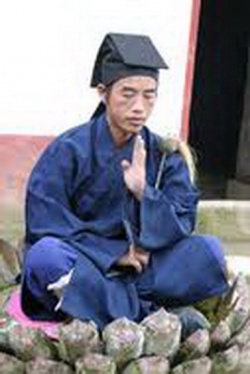BODHI (AWAKENING)
The Sanskrit and Pali word bodhi derives from the Indic root �budh (to awaken, to know). It was rendered into Chinese either by way of transliteration, as puti (Japanese, bodai; Korean, pori), or by way of translation.
The most common among the many Chinese translations are jue (Japanese, kaku; Korean, kak; “to be aware”) and dao (Japanese, do; Korean, to; “the way”).
The standard Tibetan translation is byang chub (purified and perfected). Those who are attentive to the more literal meaning of the Indic original tend to translate bodhi into English as “awakening,” and this is to be recommended.
However, it has long been conventional to translate it as “enlightenment,” despite the risks of multiple misrepresentation attendant upon the use of so heavily freighted an English word.
